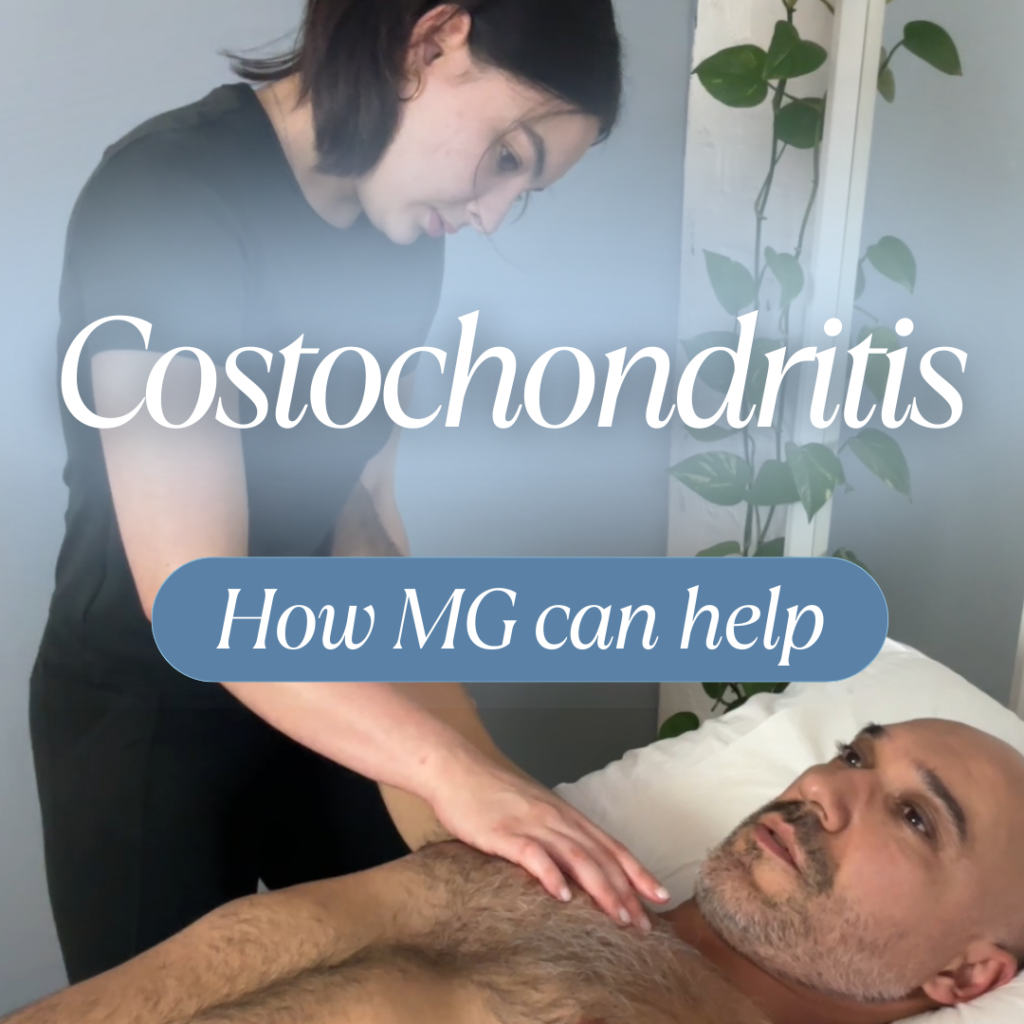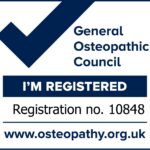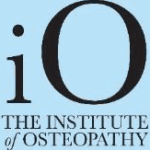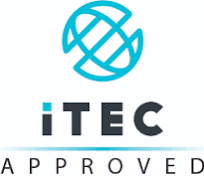What is Costochondritis?
Costochondritis is an inflammation of the cartilage where the ribs connect to the sternum, often causing sharp or aching chest pain. While this pain can mimic a heart attack, it’s typically harmless. Tietze’s syndrome is a similar condition but involves swelling in the same area, making it slightly different from costochondritis, which doesn’t cause visible swelling.
Anatomy and Symptoms
Both costochondritis and Tietze’s syndrome affect the costal cartilage connecting the ribs to the breastbone. Common symptoms include:
- Sharp Chest Pain: Typically near the 2nd to 5th ribs.
- Tenderness: Pain worsens when pressing on the affected area.
- Swelling: A key feature of Tietze’s syndrome, absent in costochondritis.
- Pain with Movement: Deep breathing, coughing, or physical activity aggravates symptoms.
Risk Factors
Certain factors increase the risk of developing costochondritis or Tietze’s syndrome:
- Repetitive Strain: Activities that involve lifting, pushing, or overuse of the upper body.
- Chest Trauma: A blow to the chest, common in contact sports or accidents.
- Respiratory Infections: Upper respiratory infections can lead to inflammation in the costal cartilage.
- Poor Posture: Slouching or prolonged poor posture puts pressure on the chest wall.
- Arthritis: Inflammatory conditions like rheumatoid arthritis can affect the costal joints.
Important Differential Diagnoses
Because chest pain can indicate serious conditions, it is important to differentiate costochondritis and Tietze’s syndrome from other potential causes:
- Cardiac Issues (e.g., Angina or Heart Attack): Heart-related chest pain can feel similar to costochondritis but is often accompanied by other symptoms like shortness of breath, nausea, and radiating pain in the jaw or left arm. Any new or sudden chest pain should be checked by a doctor to rule out heart problems.
- Pulmonary Conditions (e.g., Pulmonary Embolism or Pleurisy): Lung-related conditions also cause chest pain that worsens with breathing. However, pulmonary issues are often associated with breathing difficulties, a persistent cough, or leg swelling in the case of a pulmonary embolism.
- Musculoskeletal Strain: Strained chest muscles from overexertion can mimic costochondritis but are typically linked to a recent injury or strenuous activity.
- Gastroesophageal Reflux Disease (GERD): Acid reflux can cause chest discomfort, often mistaken for costochondritis. Reflux-related pain usually comes with heartburn, regurgitation, or a sour taste in the mouth.
- Cervical Radiculopathy: Nerve compression in the neck can lead to pain that radiates into the chest or arms, similar to costochondritis. However, it often includes neck stiffness or tingling in the hands.
How MG Osteopathy Can Help
At MG Osteopathy, we offer a holistic, drug-free approach to treating costochondritis and Tietze’s syndrome. We focus on addressing the root causes of pain, restoring mobility, and preventing recurrence through the following techniques:
1. Pain Relief
Using gentle, hands-on techniques like soft tissue massage and myofascial release, our osteopaths work to reduce inflammation and alleviate pain in the chest wall and surrounding muscles.
2. Improving Mobility
Restricted movement in the chest and spine can exacerbate costochondritis symptoms. Osteopathy helps restore normal movement in the ribs and thoracic spine, reducing pressure on the inflamed areas.
3. Posture Correction
Poor posture, particularly slouching, can strain the chest wall. Osteopathic treatment includes postural assessments and corrective exercises to reduce stress on the chest and prevent future flare-ups.
4. Long-Term Prevention
Our osteopaths provide personalized exercise programs and lifestyle advice to support recovery and prevent the recurrence of symptoms. By addressing both the immediate pain and contributing factors, MG Osteopathy helps patients find long-term relief.
Conclusion
Costochondritis is a painful condition, but with the right treatment, you can manage symptoms and return to a pain-free life. MG Osteopathy offers safe, non-invasive therapies that reduce inflammation, improve mobility, and address the root causes of your discomfort. If you are experiencing chest pain or tenderness, reach out to MG Osteopathy for a comprehensive treatment plan that promotes long-term health.
Disclaimer: This content is for informational purposes only. Always consult a healthcare professional for a proper diagnosis and treatment plan tailored to your condition.





